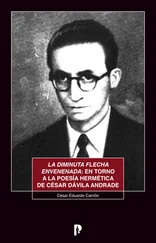Be that as it may, I couldn’t see myself getting up at dawn the following day, nor any other day, either to take a walk or for any other reason. Which was a pity, because I didn’t go out at night, either. Night in Pringles was for the young, especially a Saturday night like this one. On our way home I’d seen the activity in the streets, and now sitting in front of the television set, I remembered that the local cable channel had a show that was a live broadcast of Saturday nights.
These days every town, even some much smaller than ours, has its own cable channel. It must be a good business, requiring a small initial investment and plenty of side benefits. But it’s difficult to fill the schedule with more or less acceptable programming. The Pringles channel came up against a definitive impossibility in this respect. It was a true disaster, even though it broadcast only a few hours a day: a news show at noon, another at night, after which there was a program about farming hosted by an agronomist, another program about sports, and depending on the day of the week, a movie, music videos, a musical event at the Teatro Español, or a session of the Town Council. The news was mostly about local school events: deadly boring. Everything was precarious, poorly lit, badly filmed, badly edited, as well as predictable and repetitive. It didn’t even have the charm of the ridiculous. And even acknowledging that it is easier to criticize than to do, we Pringlesians had good reason to complain. There was no creativity, no imagination, no feelings, not even a dash of audacity.
The new program on Saturday nights offered a glimmer of hope within that context. María Rosa, the young newswoman, was the star of the show, and the idea was that she went out on her scooter, accompanied by her cameraman, to make the rounds of night clubs and restaurants and parties. I’d seen a few episodes on previous Saturdays. The poor results could be blamed on a lack of fine tuning, only to be expected in a new show. But there was a general atmosphere of ineptness that led one to think it would never improve. It was as if they didn’t care how it turned out, which is all too common and in itself can become intriguing. There was either too much or not enough light, and the sound didn’t work. If you could see or hear anything, it was almost by accident. They wanted to make it seem improvised, informal, youthful, but they were so naïve that they believed this could be achieved by behaving in an improvised, informal, and youthful way; the result was unintelligible. Anyway, what were they thinking when they entered a discotheque or burst in on a membership dinner at the Bonfire of the Gauchos Club and asked people if they were having a good time? It seemed they hadn’t asked themselves that question. If it was a sociological survey, it was poorly done; if they wanted to show how the rich and famous enjoyed themselves, they were barking up the wrong tree because in Pringles there weren’t any. They couldn’t even count on people’s desire to see themselves on television because the show was broadcast live so they wouldn’t be able to see themselves; the only thing they could hope for was that some relative would stay up late to watch it and the next day say, “I saw you.”
It had already started when I turned to it, and I amused myself for a while analyzing all its defects. Now I was watching the main part, which was the live broadcast itself: there was endless dead air between one event and another, no matter how fast María Rosa drove her scooter. They hadn’t thought of that, either. Since they didn’t have any advertisers, there were no breaks; the cameraman rode as best he could on the scooter behind María Rosa, and with wildly jerky movements the camera kept showing whatever it happened to catch — the starry sky, the streetlights, houses, trees, paving stones, all in a convulsed waltz. He had to hold onto the driver with one hand, and hold the heavy camera on his shoulder with the other, and this went on and on. María Rosa would try to fill the interlude with commentary, but in addition to not having anything to say and having to pay attention to the road, her poor diction and the sound of the engine made it impossible to understand anything.
Right when I tuned in, they were in the middle of one of these lapses. And when I had finished formulating my stringent and resentful critique (as if I really cared), they were still going full speed ahead. It was impossible to know where they were going: the swaying of the camera was frenetic, and the few blurry images that abruptly broke through the darkness didn’t give me any clues. The noise of the scooter’s engine, pushed to the max, drowned out the voice of María Rosa, who talked nonstop, made jokes, laughed, and seemed very excited. I tolerated it for a few more minutes, and when they still hadn’t arrived anywhere, I changed channels. I surfed through all seventy channels, and when I returned, after what seemed like a very long time, they were still riding the scooter. This was the last straw.
Where were they going? Might they have finally convinced themselves that they couldn’t squeeze anything out of nighttime in Pringles, and they had decided to explore a neighboring town, like Suárez or Laprida? Suárez was the closest, but still it would take them an hour and a half to get there, and they couldn’t be that unreasonable; moreover, the road there would have been smoother; judging from the bumps and jolts, they were driving on dirt roads, around curves, and in one or another of those vertiginous diagonal screenshots, the light on the camera hit on some trees and, every once in a while, a house. They must have been on the outskirts of town, or maybe they’d gotten lost. Maybe a nightclub had opened up out there, or in the neighborhood around the train station, which was some distance away. It seemed unlikely. There was a truck stop next to the roundabout on Route 5, the famous La Tacuarita, where the gourmets of Pringles used to go, but the highway went there, and they clearly were not on the highway.
Then I thought of another explanation, which was much more likely: there had been an accident, María Rosa had heard about it, and they were rushing there, turning their backs on the frivolity of nightlife in favor of real news. Saturday nights were the most prone to automobile accidents: half of Pringles had lost their lives or been crippled in accidents. The strange thing now was that I didn’t hear any sirens. But that was the best explanation for why the reporter was driving so far. She must have wanted to get there to take pictures of the dead bodies and talk to the witnesses or a survivor.
All my suppositions turned out to be wrong, except one: the nocturnal camera really was going in pursuit of a startling news item that it had heard about while making the rounds of the nightclubs. Though it was neither a traffic accident nor a fire nor a crime, but something much stranger, so strange that nobody in their right mind could believe that it was really happening. So they were going (they couldn’t not go) to expose the lie and unmask the pranksters. The prank might have been the phone call, or the information that had made them go, and if so, they wouldn’t find anything.
Anyway. They were on their way to the Cemetery because they’d been told that the dead were rising from their graves of their own accord. This was as improbable as an adolescent fantasy. It was, however, true. The guard who sounded the alarm first heard some rustling sounds that kept getting louder and spreading across the graveyard. He came out of the lodge to take a look and hadn’t even made it across the tiled courtyard to where the first lane of cypresses ended when, in addition to the worrisome rustlings, he began to hear the loud banging of stone and metal, which seconds later spread and combined into a deafening roar that reverberated near and far, from the first wing of the wall of niches to the rows of graves extending for more than a mile. He thought of an earthquake, something never before seen on the serene plains of Pringles. But he had to dismiss this idea because the paving under his feet could not have been more still. Then he managed to see, by the light of the moon, what was making the noise. The marble gravestones were moving, rising from one side and breaking as they came hurtling down. Inside the crypts, coffins and iron fittings were spliting open, and the doors themselves were being shaken from inside, the padlocks were bursting open, and the windows were shattering. The covers of the niches were being forced off and were crashing loudly to the ground. Concrete crosses and stucco angels flew through the air, hurled from the crypts as they violently flung open.
Читать дальше












